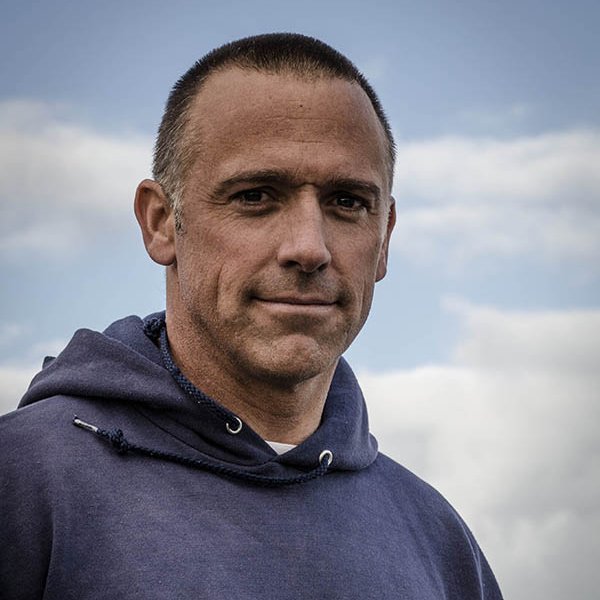The Art of Anthology
Adam Jeffrey talks with Jock Serong
3 April 2023
When incoming StoryFest President Adam Jeffrey began planning our program for 2023, his very first publisher meeting was with Fremantle Press. The ever-helpful Chloe Walton told him about an anthology of short stories based on Paul Kelly's songs, Minds Went Walking, put together by Mark Smith, Neil A. White, and dear friend of StoryFest Jock Serong.
Adam is a massive fan of short stories, Paul Kelly, and Jock - so he immediately wanted to create a special place for the anthology within the program. Alas, events and schedules conspired against us. Jock had books to write. Mr Kelly's management knocked back an appearance at StoryFest in a heartbeat. And while the StoryFest program is now looking amazing - click on 2023 Program in the main menu to find out more and grab your tickets - Adam still wanted to give this project some space in our StoryFest world.
So let's explore Minds Went Walking, short stories, and the nature of putting together an anthology here in our newish blog. Jock kindly agreed to this distraction from his writing, and answered a few of Adam’s self-described “somewhat clumsy” questions.
Adam: I've always loved anthologies - my in-laws always used to give me The Best Sports Writing of [insert year here] every Christmas which was always right at the top of the pile before the Boxing Day test started. My own first story published was in a university anthology. What has been your relationship with anthologies and short story collections?
Jock: The first thing I ever got into print was a story I wrote for the Melbourne Uni Cricket Club newsletter about the celebrated English legal case of Bolton v Stone - in which an old lady who lives next door to a cricket ground walks out her front door to go shopping, only to get sconed on the head by a six. I'm not sure if this constitutes "being published in a collection", but my early efforts were definitely supported by anthologies and I still try to contribute to them where I can. When you think about the logistical challenges in trying to get work published commercially under your own name, they are still a vital way of getting your name out there and finding a readership. Our magazine Great Ocean Quarterly works as a literary anthology in some ways, and we try very hard to support new writers in its pages. And I should add, as a reader I love them. I just finished a collection of sports writing from the New Yorker - Murakami on running was some of the weirdest and most entertaining sports writing I've ever read.
Adam: I'm curious about the short story and collections of them being short-changed. I feel like they can deliver with such clarity and impact in a few short pages. Two that spring to mind recently are Alice Bishop's A Constant Hum and Tony Birch's Dark as Night. At a time when we lead such distracted and cluttered lives, I'm surprised they don't attract a wider audience. Do you think short story collections are under-appreciated? And if so, why?
Jock: I really agree. Given the astonishing quality of Australian collections like Melanie Cheng's Australia Day, Nam Le's The Boat and more recently Chris Flynn's Leviathan, it's maddening that they haven't got more of a foothold. I know that in discussions I've had about my own career at times I've asked the question - “what about doing short stories?” And the answer has been - “nobody buys them.” We got a bit of that when we were pitching the Paul Kelly book, and I think it's really dispiriting. And don't even start me on novellas. The reasons are apparently commercial, but if we didn't have short stories, great writers like Raymond Carver, Joan Didion, Roald Dahl and even Hemingway would have so much less to offer our culture. I think publishers and funding bodies have a duty to educate the reading public about the value of the form.
Adam: As soon as Chloe told me about the anthology, it instantly struck me as such a simple idea and kind of surprising no one had done it previously. How did the concept behind Minds Went Walking get sparked into something more concrete?
Jock: It was Neil White wot done it. He approached both Mark and me by Twitter from the US where he lives. I'll admit I was initially skeptical but Mark rang me and said “this is a bloody great idea. We've got to do this.” So we did, and it was very interesting to see how avidly those writers leapt on the invitation. We had no great commercial proposition to put to people - didn't even have a publisher early on - but very few people declined. I think that goes to show the level of affection for Paul Kelly's songs, and the fact that a great storytelling opportunity usually beats four aces.
Adam: Was Australia's Muse / Poet laureate involved or supportive? Did he need to be?
Jock: Paul's a cultural giant. He's in a position where he must be besieged by mugs like us all the time, so it was handled through his people rather than directly with him. In the end, a papal blessing was dispensed somehow and we were cleared to do it. There's been some Waiting for Godot moments along the way where we thought he might appear at launches and things, but he hasn't so far. I don't blame him at all for that: there's power in mystique.
Adam: How do you pitch an idea like this to publishers? Was it hard to get support from them or to get writers to put pen to paper with Kelly's work as the inspiration?
Jock: As I said, the writers jumped all over it, and that was wonderful to see. Some of them even had stories lying around that they'd half-formed in response to Paul's songs, or experiences they'd been itching to write down. The one writer who has a significant personal connection to Paul is Tim Rogers, so we were especially pleased that he came on board, and his contribution really reflects that connection.
Pitching to publishers is different and less personal, because obviously different considerations are at play, but we were so delighted by Fremantle Press's instant enthusiasm for the idea. And they set about injecting Sandgroper Energy into the project, which improved the end result immensely. Mark and I had previously been involved in their surfing collection, Lines to the Horizon, so we knew that Georgia Richter and her team do this kind of thing very well.
Adam: Was there anyone you approached whose response surprised you? I know you can't play favourites, but is there a story in the collection that stood out for you for a particular reason?
Jock: Oh hell, there's heaps, and you're right - I feel like I would be playing favourites. What amazed me was the variety of responses to the brief. Very few writers went straight to the big hits as their reference point: for example, no-one did “Leaps and Bounds”, or “Darling It Hurts”. Some people wrote about a concert (Robbie Arnott and Lorin Clarke - heartbreaking). Others wrote quite serious musicology about the songs (Matt Neal). Some studied local culture through the lens of his lyrics (Bram Presser). There were a bunch of doomed love stories (Angela Savage a standout), and even a compelling story about a pig by Michelle Wright. And Claire Coleman's intense, first-person rendition of “From Little Things Big Things Grow” is a marvel.
Adam: Any other projects like this in the wings? I wonder who else could inspire the kind of enthusiasm Paul's writing has?
Jock: There is another one coming: I just checked with Mark and he said if I revealed who the musician is he would skin me alive. But for those playing at home - it's a pretty short-odds game, isn't it? Australian singer-songwriters with a deep back-catalogue, and who are held in enough reverence to inspire the storytelling. Just please don't send me your guesses!
To find out more about Jock Serong, the six novels he has authored - most recently The Settlement (Text Publishing) - and why he has an aversion to prawn processing, visit his website: jockserong.com
Photo of Jock by Mick Sowry, with thanks to Fremantle Press



